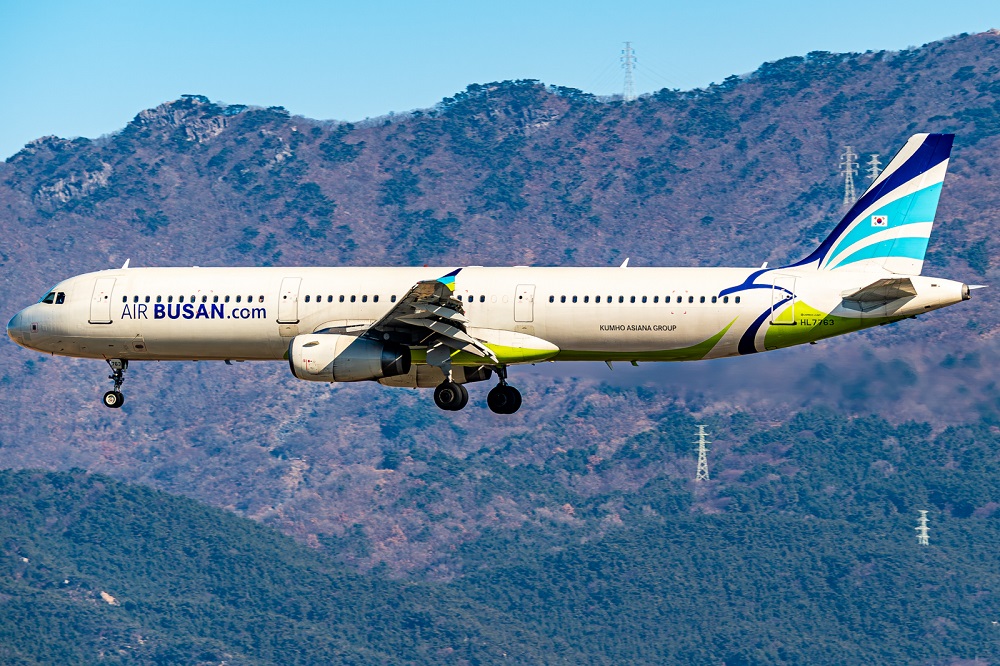Civil Aviation
Lithium-Ion Battery Sparks Fire on Air Busan A321, Raising Safety Concerns

Lithium-ion batteries, commonly found in portable power banks, are known for their fire risk, a concern that has led to strict regulations and even bans on their transport in certain conditions.
Despite these measures, recent incidents continue to highlight the dangers these batteries pose in aviation. One such incident occurred late Tuesday night on an Air Busan Airbus A321-200, marking the airline’s first hull loss and a significant safety event since its founding in 2008.
The Fire Incident at Gimhae International Airport
The fire on the Air Busan A321 broke out as the aircraft was pushing back from the gate at Gimhae International Airport, carrying 176 passengers and crew. Passengers reported hearing crackling sounds from the overhead luggage compartment before smoke began filling the cabin.
Initial investigations suggest that the fire likely started in an overhead bin above row 28, where a portable power bank, possibly compressed, may have ignited.
The fire triggered an immediate evacuation of the aircraft. A total of 169 passengers and seven flight attendants used inflatable slides to safely exit the plane.
Initially, three people were reported injured, but this number later increased to seven, with one individual remaining hospitalized. The French Bureau of Enquiry and Analysis for Civil Aviation Safety (BEA) has sent investigators to assist with the ongoing probe.
Challenges in the Ongoing Investigation
The investigation into the fire is complicated by a significant risk: the presence of approximately 15,000 kg of fuel still in the aircraft’s wings. This poses a serious threat of explosion, especially if the fire reignites during the investigation process. Authorities are working carefully to manage this potential hazard while trying to determine the exact cause of the fire.
Lithium-Ion Battery Regulations and Safety Concerns
Air Busan’s guidelines permit lithium-ion batteries in carry-on luggage, but only for personal use. Power banks are allowed with a maximum capacity of 160Wh.
Despite these regulations, the incident underscores the continued safety risks associated with lithium-ion batteries on aircraft. The fire serves as a stark reminder of the potential dangers these batteries pose, even when transported within the rules set by airlines.
Authorities are now investigating whether Air Busan could face any liability for potential professional negligence.
This could include issues related to baggage handling and onboard power systems, especially in light of the fact that such incidents continue to raise concerns about the safe transport of lithium-ion batteries in the aviation sector.

